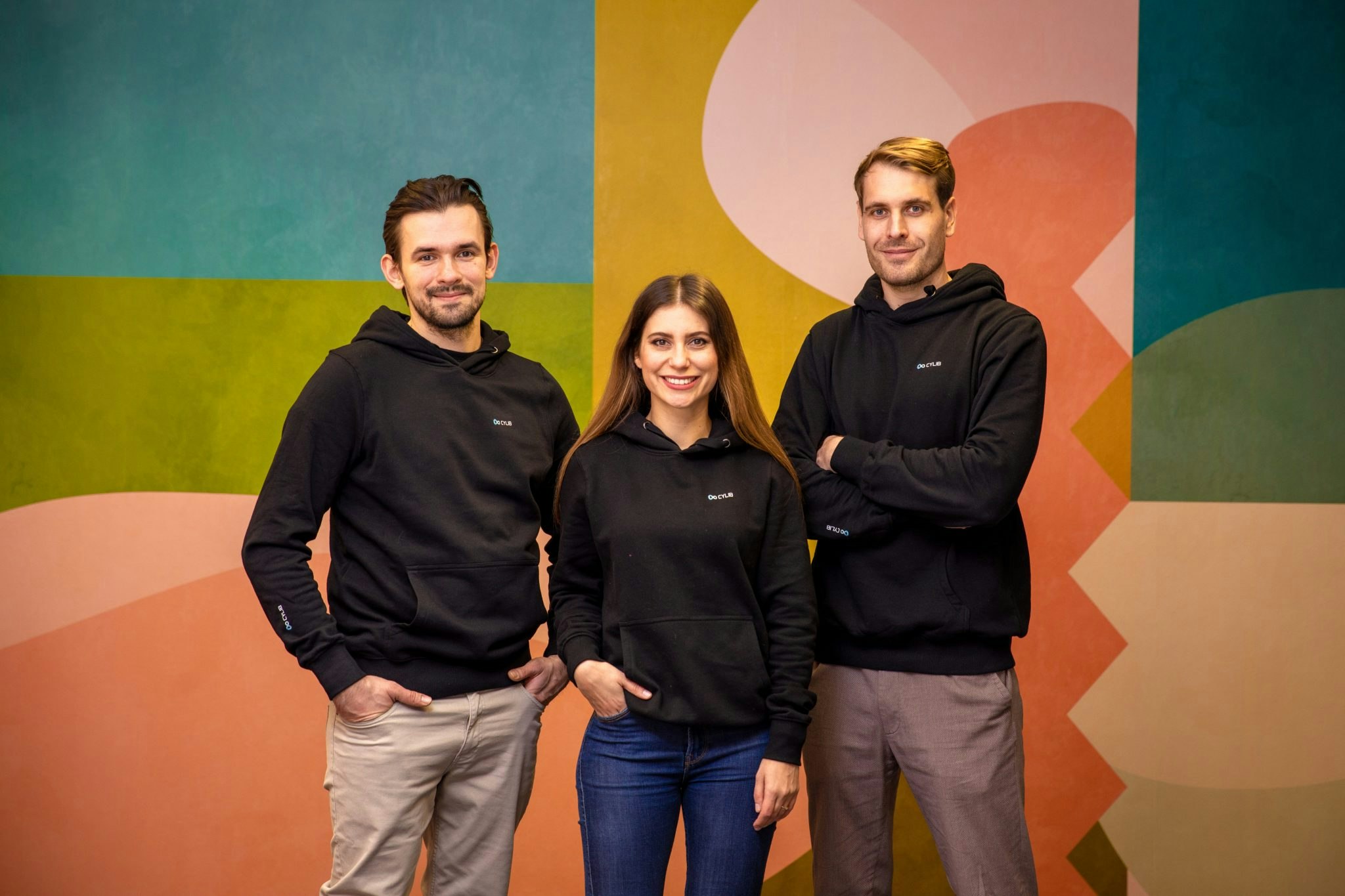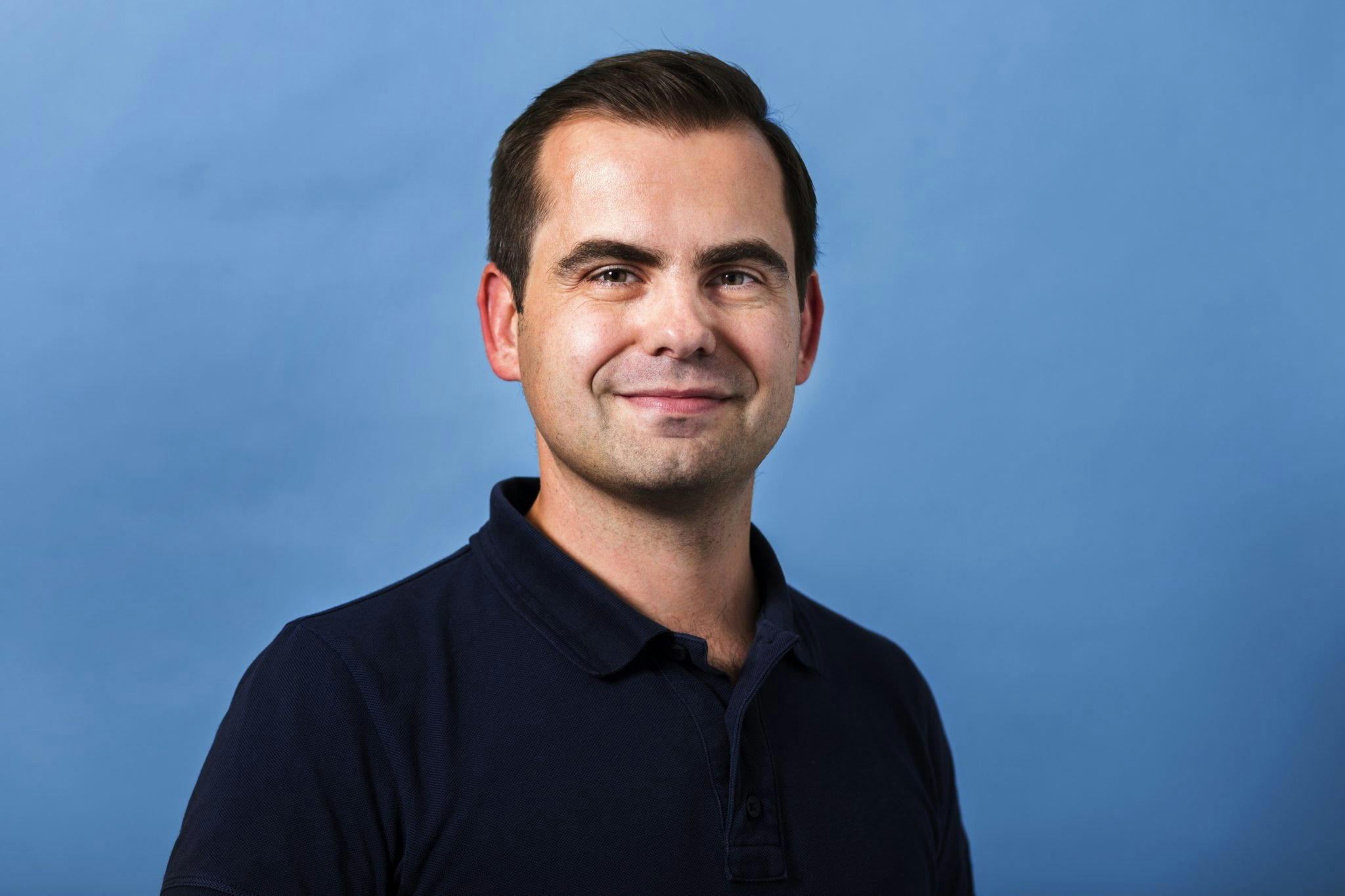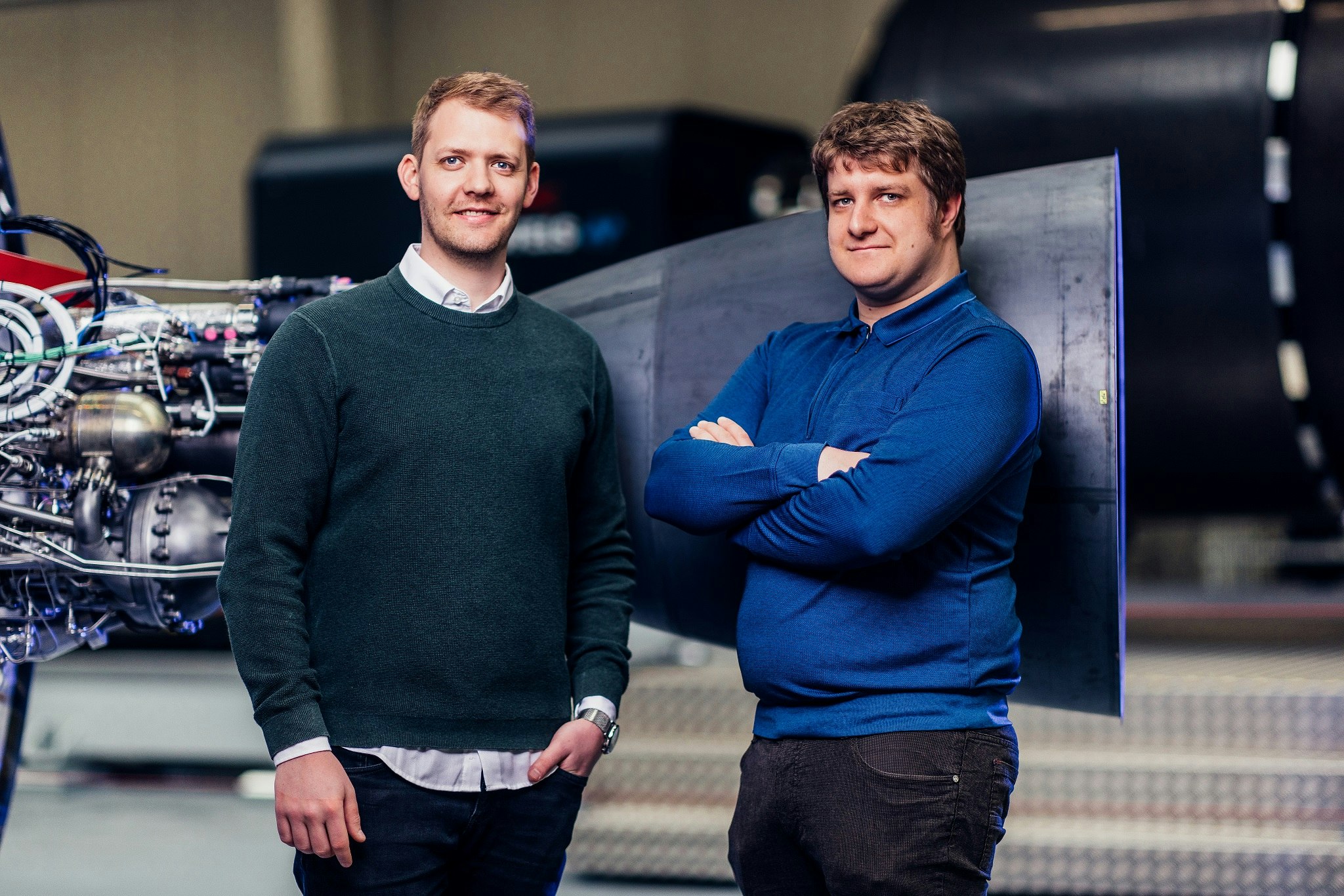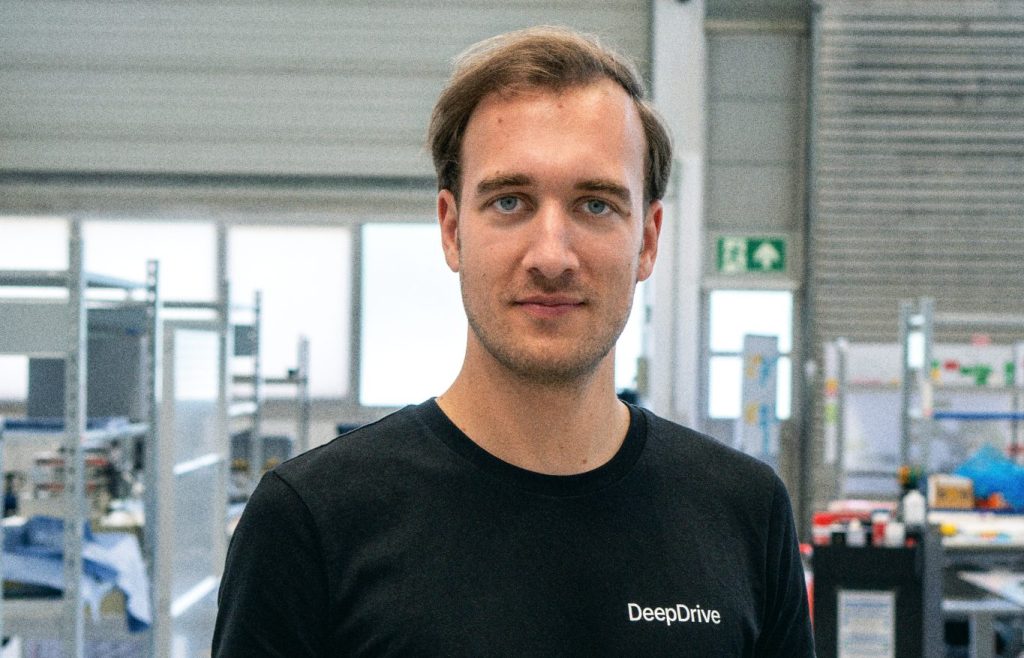2024 was an eventful year for Germany’s startup scene. AI defence startup Helsing raised a chunky €450m round, N26 reported its first profitable quarter after its customer restrictions were lifted by BaFin, and air taxi darling Lilium filed for insolvency (and then found a buyer).
The year was topped off by the news that the country will face an election in February after Chancellor Olaf Scholz lost a vote of no confidence.
With its economy in decline, Trump back in the White House and European governments like France undergoing leadership changes, it all adds up to an uncertain time for a country that was, for so long, the rock of European stability.
There is some silver lining to be found for startups. In Q3, 736 companies were founded — the highest since the boom in 2021 — and in Q3 deal activity, in the DACH region came in at €9bn, putting the full-year deal value on track to increase 6.3% year on year. The federal government also unveiled the WIN initiative in September which aims to invest €12bn of public and private capital into startups by 2030.
Amidst the good and the bad, Sifted asked 10 German entrepreneurs and investors what their predictions are for the year ahead.
2025 will see a new generation of ‘super startups’
Jessica Holzbach, cofounder and CEO of Pile

AI has become a cornerstone for almost every newly founded company this year and will continue to dominate in 2025. The US is leading in innovation, making significant advancements in AI, quantum computing and chip technology. Amazon, for example, is transforming its supply chain into profit centres and developing AI chips that are already more cost-efficient than NVIDIA’s. In 2025, the US will double down on deeptech applications, even acquiring power plants to meet the rising demand for computing power, further solidifying its position in the global race.
Europe, on the other hand, finds itself at a critical juncture. Political struggles, war and regulatory frameworks like the AI Act continue to hinder its ability to accelerate innovation. Yet, I am optimistic about a potential tech renaissance in 2025. For Europe to unlock its potential, it must focus not only on fostering deeptech startups but also on adapting innovations to solve real-world problems and scaling them effectively.
While some European players will remain stuck in R&D, likely overtaken by US and Asian competitors, the real opportunity lies in Europe’s highly specific, regulation-heavy markets. These markets, difficult to penetrate without close localisation, could benefit immensely from AI-driven growth. I believe 2025 will witness the emergence of entirely new “super startups” that leverage this unique advantage.
Europe will either become a true union with common goals and strategies or move backwards towards national state interests
Lilian Schwich, cofounder and CEO and Gideon Schwich, cofounder and COO of Cylib

With Trump elected as the new US President, France and Germany facing political and economic pressures, and national elections on the horizon, 2025 will be a decisive year for the European Union as a whole. As the EU risks losing relevance as the third-largest economic region, it urgently needs to decide whether it wants to become a true union with common goals and strategies or continue focusing on national interests while fostering dependency on the US and China.
Therefore, we believe building a sustainable battery ecosystem to drive the transformation of the European automotive industry toward e-mobility must be a central part of a unified strategy to create a strong, innovative and independent EU capable of thriving in the future. The EU can rely on its existing research and talent, which offer significant innovative potential. However, the need to act, invest and unite will become more urgent in 2025.
AI will (continue to) dominate Germany’s tech ecosystem: in particular, healthcare
Gülsah Wilke, partner at DN Capital and founder of 2hearts

In the next year, Germany’s tech ecosystem will be shaped by the rise of agentic AI and personalised AI assistants. The use of these technologies is set to further transform both enterprise and consumer applications. Businesses will increasingly adopt agentic AI for its ability to streamline complex processes, such as supply chain optimisation and customer service, enabling unprecedented scale and efficiency. As an investor, this represents an opportunity to back startups building foundational AI infrastructure that can drive these capabilities across industries.
On the consumer side, personalised AI assistants will gain significant traction, particularly among younger demographics who value hyper-customised, always-on solutions for productivity, health and wellness, and entertainment.
These AI-driven tools will also redefine many traditional sectors such as healthcare. Scrutiny and pressure on global health systems has been heightened since the pandemic, and there’s now significant demand for new technologies that will further increase efficiency, insight and clarity in health. AI tools offer healthcare professionals and systems ways to greatly cut down on administrative burdens, unlocking more time to spend on patient care, enhancing diagnosis and early detection through processing huge datasets.
In 2025, Europe will fully realise its deeptech potential
Thomas Oehl, general partner at Vsquared Ventures

In 2024, deeptech gained momentum, stepping into the spotlight as a critical enabler of transformative solutions. But awareness is just the beginning. My prediction is that 2025 will be the year Europe’s deeptech ecosystem fully realises its potential. Here’s how this will unfold:
- Specialised teams and funds: Generalist investors will increasingly build deeptech expertise, while specialised funds will become even more active, fuelling the sector’s growth, while benefitting from the massive opportunity it presents.
- Talent tetention: With increased funding, Europe will better retain its technical talent, leveraging a STEM-rich pool to drive innovation locally.
- Collaboration: Working towards a shared long-term vision, founders, investors, governments and corporates will further integrate the ecosystem, driving immediate results.
This evolution isn’t hypothetical. Deeptech attracted 33% of Europe’s investments in 2024, compared to 17% in 2015. With $14bn invested so far — a 450% rise over the last decade — and Europe’s technical talent pool growing at 24% CAGR, the continent is ready to lead. Networks are emerging, connecting founders, LPs, corporates and public sectors, and are cementing deeptech’s role as a maturing asset class.
The most exciting aspect? These elements combined will create a thriving environment for breakthroughs in new space, energy transition, robotics, new computing and sensing, AI and techbio in 2025, leading to true global champions being built out of Europe. President Macron’s vision is 10 €100bn tech giants by 2030. In deeptech, this ambition is within reach.
Climate tech will continue to boom
Danijel Višević, managing partner at World Fund

Climate tech will remain a critical investment field — it’s not a fleeting trend but a pressing global challenge, setting it apart from whatever else might be in vogue. With 2024 set to follow 2023 as the hottest year on record, the urgency for solutions is undeniable. Europe — and particularly Germany — will continue to lead in pioneering tech, not only for decarbonisation but also to strengthen European resilience in energy, industry, food and agriculture.
Next year we will see significant advancements in battery technology, including improved formulations, recycling and analytics tools. This will lead to higher energy density, better efficiency and lower costs. Europe will benefit as capacity grows alongside renewable energy expansion. We’re also expecting a breakthrough in meat alternatives, particularly mycelium-based substitutes, with prices set to drop, driving market adoption.
European sovereignty will be central to our investment decisions, helping mitigate geopolitical risks and value chain dependencies. Germany is poised to excel in key areas: next-generation batteries, e-aviation, quantum computing (with leaders like IQM) and space tech. Real estate will also progress through serial refurbishment, reducing costs while enhancing energy efficiency. With innovations ready to scale, we can still expect an industrial renaissance powering a clean future.
Specialised AI solutions will take precedence over general ones
Jarek Kutylowski, CEO and founder of DeepL

Over the past year or two, we’ve seen a lot of excitement around general-purpose AI models. However, there is a growing understanding among German businesses that, while generalised tools can be beneficial for some day to day tasks, more specialised solutions are needed to solve specific use cases that are important to a business.
That’s why I predict that, in 2025, specialised, tailored AI solutions will dominate, solving specific industry challenges and delivering tangible return on investment for businesses — in Germany, as well as worldwide.
Looking at AI adoption in German businesses, I believe 2025 will continue to be a strong year for the industry with more firms cementing their AI strategy and bringing on a suite of solutions to enable them to grow and achieve their objectives.
Looking even further into the future, I think the lines between general and specialised AI will blur, making room for the rise of more hybrid models with specialised and business-specific customisations layered on top.
The move to net zero will create huge demand for talent
Kave Bulambo, founder of BlackinTech Berlin and founder of TalentDiverseEU

Germany is facing severe labour shortages: by 2030, the country will need about 3m extra workers, or 500k per year, and we are nowhere near reaching that target. At the same time, the country is under pressure to achieve net zero by 2030. Germany is lagging behind when it comes to obtaining minerals for lithium batteries for EVs, building charging stations and encouraging adoption of solar panels — and China and the US dominate these markets.
So what does this mean for talent? More hands on deck will be needed to maintain old companies (and bring them into the future) and build newer ones to speed up the green energy transition, which means more job opportunities — and there’ll be a wide range of them on offer.
Whereas talent previously moved to Germany for purely software-related jobs, now there is a surge in demand for mechanical engineers, technicians, electricians and sustainability experts.
Two things stand in the way of Germany attracting international experts:
- Workplace culture will need to be transformed if it is to attract a diverse workforce. German is still the primary language for most companies — speaking fluent German cannot be an expectation if companies wish to ramp up hiring.
- Second to that is politics. With the rise of the far right, people are still determining what will happen after the elections in February 2025. The far right is anti-immigration and the sentiment is stronger in smaller regions where the jobs are. Maybe it’s possible to recruit talent internationally, but for many companies, workers need to be in Germany.
I predict that we’ll see a continued rise of greentech startups and that existing ones will receive funding — but only those that can build diverse and inclusive workforces will attract the talent they desperately need from overseas.
VCs will bet even more on deeptech
Felix Poernbacher, cofounder and CEO at DeepDrive
While the established German economy will be struggling and VCs will continue to be careful not to overpay and over-invest in 2025, investors will turn to an often overlooked part of the startup scene: deeptech.
Companies solving hard problems, whose success is driven by technology, have the potential to become the next mega companies. In times where hypergrowth through hyperfunding is not working as well anymore, deeptech startups will become more in vogue, because they can differentiate themselves more sustainably and build real inherent value.
We’re starting to see more spinoffs from universities and institutes, transforming research into businesses. Add accelerators like UnternehmerTUM and state-funded investment vehicles to the recipe and you’ll get a wave of high-quality deeptech startups. Especially in Germany with a strong industrial footprint, established companies with their industrialisation know-how can help these startups to achieve the scale they need to become a real investment case.
Timelines are longer, capex requirements are higher, opportunities are harder to evaluate for VCs – but the outcomes for the investors willing to make the bet on the startups that will solve nuclear fusion, space travel or finally unlock the mass adoption of EVs will be massive.
The application layer of AI will underpin Europe’s economy
Robert Lacher, founding partner at Visionaries Club

In 2024, Germany faced one of the most significant wake-up calls of my lifetime, both economically and politically. The positive news is that young people are realising the existential risks of falling behind in a world where technology will soon drive our GDP — and it’s sparking a hunger to build a new business model for our continent which will start to take shape in 2025.
Next year, we have a real opportunity for Europe to stake its claim in the application layer of AI, which I believe will underpin our economy just as our industrial giants did 100 years ago. But this will only be possible if we foster partnerships between traditional sectors like manufacturing and AI innovators in the startup ecosystem. That way, we can bridge the productivity gap and supercharge Europe’s industrial heartland once again.
We’re already seeing early champions emerge — Tacto, Black Forest Labs, Helsing, Robco, Mistral and DeepL, to name a few. Building on this strength, I predict that in 2025, clusters like Munich will reach an inflection point and we’ll see the next generation of B2B leaders emerge that are poised to transform Europe’s economy.
Technologies enabled by space will define Germany’s sovereignty
Daniel Metzler, cofounder and CEO of Isar Aerospace

In 2025, Germany must take decisive steps to lead in space-enabled technologies or risk falling behind. Space is no longer science fiction, it’s the backbone of modern life, from navigation to climate monitoring to financial transactions. Space also is the frontier shaping our security and autonomy: without space, there’s no resilience, no defence, no sovereign Europe.
Two-thirds of the data we use to fight climate change comes from space. Space will decide which nations drive the next wave of technological innovation and economic power. For Germany, this means building reliable, cost-effective access to space and growing a globally competitive space industry.
Even today, data from space decides the strategic advantage on the battlefield in Ukraine. A strong, self-reliant Germany — and Europe — must reduce dependencies and take control over the technologies that matter most. 2025 will be a test of our ability to shape this future. The message is clear: autonomy in space is autonomy on Earth. Germany must lead or it risks being led.
Read the orginal article: https://sifted.eu/articles/german-tech-predictions-2025/



